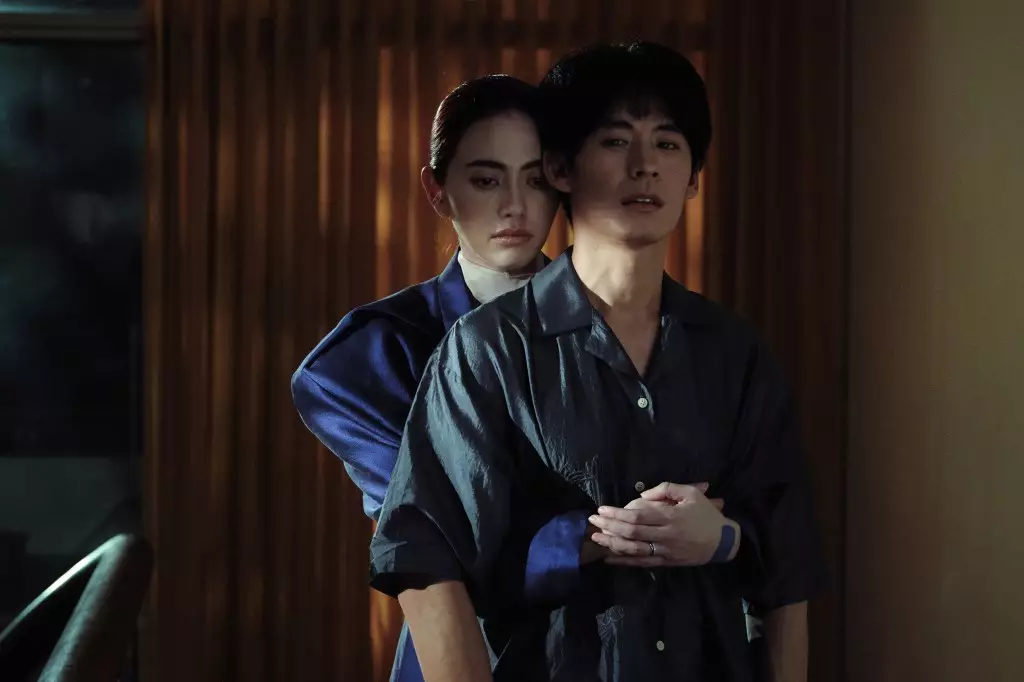In a stunning display of creativity and originality, A Useful Ghost, directed by Ratchapoom Boonbunchachoke, has emerged as a standout film at the prestigious Cannes Critics’ Week. Not only does this zany romantic drama mark a significant moment for Thai cinema, as it is the first film from Thailand to participate in this parallel section in several years, but it also captures the audience’s imagination with its refreshingly unconventional premise.
The film’s narrative weaves a unique blend of humor, social commentary, and supernatural elements as it tells the story of Nat, played by the charismatic Davika Hoorne. What elevates A Useful Ghost beyond typical romantic dramas is its remarkable angle: Nat returns as a ghost embodied in the form of a vacuum cleaner posthumously. This quirky twist serves as both a literal and metaphorical exploration of dust pollution and the pressing environmental issues plaguing our society today. By centering a ghost on a household appliance that symbolizes cleanliness and order, the film crafts a striking commentary on the irony of life and death interwoven with existential struggles and responsibilities.
Celebrating Diversity and Talent
The Cannes Critics’ Week is well-regarded for showcasing diverse stories from emerging filmmakers, and this year was no exception. The jury, led by Spanish director Rodrigo Sorogoyen, displayed an admirable commitment to recognizing bold storytelling and unique visions. Alongside him were talented individuals like Oscar-winning actor Daniel Kaluuya and renowned cinematographer Josée Deshaies, each bringing their perspective to the panel. Their decision to award A Useful Ghost the inaugural AMI Paris Grand Prize is indicative of a shift towards embracing individuality in storytelling, especially from regions that have historically underrepresented voices at the film festival.
Moreover, the film’s narrative explores the complexities of relationships beyond the bounds of ordinary life. Witsarut Himmarat’s character, March, encapsulates the challenge of navigating familial expectations amidst an eccentric human-ghost union. The film humorously critiques societal norms and conventions, prompting viewers to question the nature of love and attachment, especially when faced with existential crises.
Recognition Across Borders
While A Useful Ghost steals the spotlight with its groundbreaking premise and execution, other productions in the competition also garnered significant recognition. Deni Oumar Pitsaev’s autobiographical documentary, Imag, which delves into modern architecture’s clash with local culture, demonstrates how diverse narratives can engage audiences in thought-provoking ways. Similarly, Quebecois actor Théodore Pellerin’s award-winning performance in Nino exemplifies the raw talent that defines contemporary cinema across different regions.
Films like Randa Maroufi’s L’mina also highlight the power of storytelling in short formats, shedding light on real-world communities and their struggles, further broadening the scope of representation at Cannes. Through various accolades, the festival underscores the importance of cultivating a cinematic landscape that embraces multiple narratives, simultaneously allowing audiences a glimpse into worlds they might not otherwise encounter.
As A Useful Ghost and other noteworthy films enhance the narrative tapestry of global cinema, it’s clear that boundary-pushing creativity is not only being celebrated but is necessary for the evolution of storytelling in the film industry.

